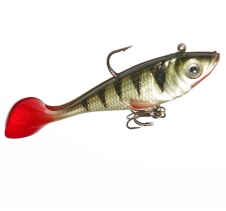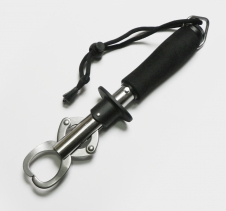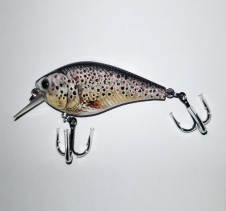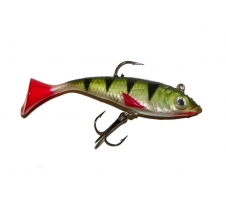Visit Our Online Store! $7 AusPost Parcel Post Delivery FREE Postage for orders $45 and over!
* Shipping rates above apply to Australian Customers only
Tips for introducing your kids to fishing: Part 2
Introducing kids to fishing in a way that hopefully prompts them to accept it as a regular activity.
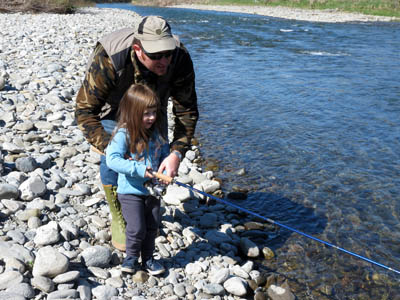 Taking a kid fishing is a great way to introduce the next generation to the great outdoors. Kids are naturally curious about the world around them, so being outdoors is a great opportunity to learn a great deal of things for a kid. Keep in mind, though, that kids are not just small adults. They have a different set of needs and interests. You want to keep fishing fun for them so they will want to come back out with you. The goal is to provide them with a hobby they can enjoy for the rest of their lives.
Taking a kid fishing is a great way to introduce the next generation to the great outdoors. Kids are naturally curious about the world around them, so being outdoors is a great opportunity to learn a great deal of things for a kid. Keep in mind, though, that kids are not just small adults. They have a different set of needs and interests. You want to keep fishing fun for them so they will want to come back out with you. The goal is to provide them with a hobby they can enjoy for the rest of their lives.Learning
When you take a kids fishing, there are many opportunities for them to learn about the world in which they live. Teaching fish species and the fishing regulations are just some of the first things kids can learn. They can also learn about the food chain what s eating what in their local lake. Parents and other adults can also teach conservation and stewardship while on or near the water. Fishing is a great way to help explain to kids their place in the world around them and how fish and other animals depend on them to help keep their local waterways healthy. Conservation for future generations is something most anglers practice, and that, too, should be passed on to kids. Keep it interesting and keep it fun. Be patient and answer their questions as best you can. If they get into an area you are not sure about, be sure to go to the library or home to use the Internet when you are done fishing. Allow them to conduct as much research as possible on their own. This is another skill they will use for a lifetime.
Equipment
Equipment is important. Many anglers started out with a cheap, short fishing pole coupled with a push button spincast fishing reel. This is still a great, iconic set up for young kids. They are perfect for the smallest of hands and they help to keep the whole day fun. As kids get a bit older, though, introducing them to a regular spinning reel is a great idea. Open-baled spinning reels are much more versatile. The bigger, stronger rods will also help kids bring in bigger fish all on their own.
These set ups are easy to learn to use and they are more dependable over the long run than the push-button reels and plastic character rods. A spinning reel combo can be bought very inexpensively and will still work great as the kids grow older.
Bait
Live bait is best for kids. Let them watch the bobber and learn to feel what a strike feels like by watching the bobber. Worms and minnows are great to start with. You can even take the kids out to dig their own worms before heading out to the lake. Letting them get involved in any preparation such as this builds the anticipation of the trip.
As kids get older and they have better motor skills, they can learn to cast an artificial lure. Spinnerbaits are great to start with. Kids can catch fish with just a steady retrieve with either of these, and they aren't heavily prone to snagging. Save the soft plastics and jigs until they are ready for them. There is no certain age to introduce these various types of fishing lures. Some kids will be ready before others, and that s okay. Leave it up to the kids to decide when they are ready.
Time
Remember that your day of fishing may be far too long for the kids first trip, or even their fifteenth trip. You want to keep fishing fun for them. Let them decide how long they want to stay out. When they start to get bored, it s probably time to go. Try changing spots or changing lures when the fishing gets slow. Ideally, it s best to take kids out the first few times to a place where they can catch a lot of fish, regardless of the size. It will keep the day fun and exciting. But, when they are done, don t try to push it too much farther. Head in for the day and go over everything that happened that day. Let the kids talk about their catches and what they thought the best parts of the day were.
Snacks
Make sure to bring along some snacks and something to drink. Take breaks throughout the day for a special treat. If you can find some reasonably healthy snacks that the kids don t normally get, that s great. If they have certain snacks that they only get when they are out fishing, that makes those snacks extra special. And keep bottled water or sports drinks on hand. Make sure the kids stay hydrated. Soft drinks are not the best choice for hydration, but there's nothing wrong with letting them have one during a day of fishing if you are so inclined.
Conclusion
Overall, taking kids fishing is about having fun. Get them some decent equipment that won t frustrate them, but that is easy for them to use. Make sure to take breaks and have some snacks on hand. Let them ask questions and learn things every time they are out fishing. When you re planning your fishing trip, let them get involved. Digging up worms and getting tackle boxes ready can add to the anticipation of the trip. In all, make sure the day is fun for the kids so they want to come back. When they get bored, it may be time to head home for the day. Don t make them stay longer than they want. Let them know they can leave whenever they want and that they can come back again another day. Keeping fishing fun will ensure that kids want to keep coming back and that they will have a fun hobby for the rest of their lives.
This article was prepared by our associated writer Rebecca, who is a life long competition fisherwoman from the USA.
Follow us on twitter: @FishTackleLures or Google Plus: +FishingTackleLuresAU
View more articles in our Australian Fishing Guide.
Enter your email address below to be updated on new fishing articles, fishing lures and special offers:
We will only email once every two to four weeks at the most, usually every 2 months.
POPULAR PRODUCTS IN OUR ONLINE STORE


